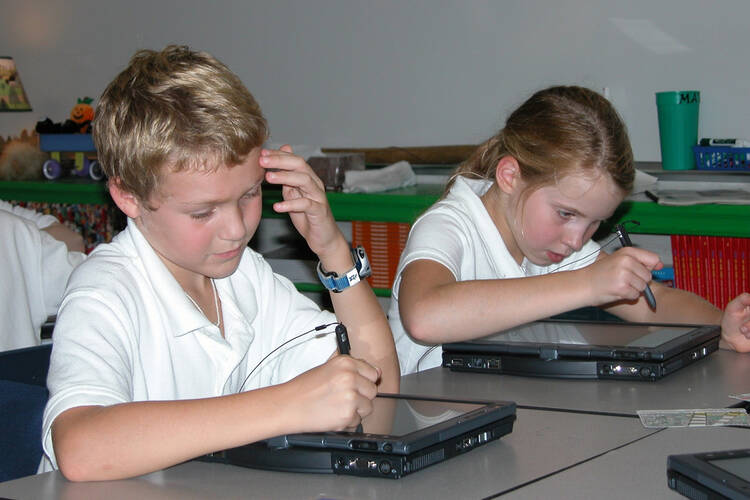As many schools move toward "project-based learning" and curriculum models emphasizing innovation and "design thinking," the status of traditional methods and texts becomes increasingly murky. Teachers and experts continue to emphasize learning by doing, where students commit to assignments that involve collaboration, presentation, and the construction of a tangible finished product or some other outcome with a "real-world" application. While these developments aren't a bad thing, it doesn't exactly bode well for the old-school seminar, for courses that depend more on reading, listening, and conversing, the kind that tend to energize philosophy majors and advocates of the liberal arts.
It's heartening, then, to see what's afoot in Wisconsin. As reported by greenbaypressgazette.com, "The Catholic Diocese of Green Bay and the Green Bay Area Catholic Education system announced plans Tuesday to create a new school that will use a Catholic classical curriculum, including in-depth study of the traditional works of the Western world and the great works of Christendom."
The official diocese press release had this to say:
"A group of parents have shown interest in a school that follows a classical curriculum model, which includes in-depth study of the classical works of the western world," said Bishop Ricken at an April 29 press conference. "The goal is to develop complete thinkers who learn to draw on faith and reason for the purpose of building up the Church. This idea was first brought to me in late February with a recommendation from the [Green Bay Area Catholic Education System] Board of Directors, and I was pleased to help develop a way to educate more Catholic children seeking this specific kind of education."
As of now, this sounds like a very promising initiative. The Socratic method, the integration of faith and reason, introduction of Latin, and the use of classic texts and authors? In today's milieu, with schools increasingly pressured to outsource their teaching to apps and software, this might be the most innovative approach around.








